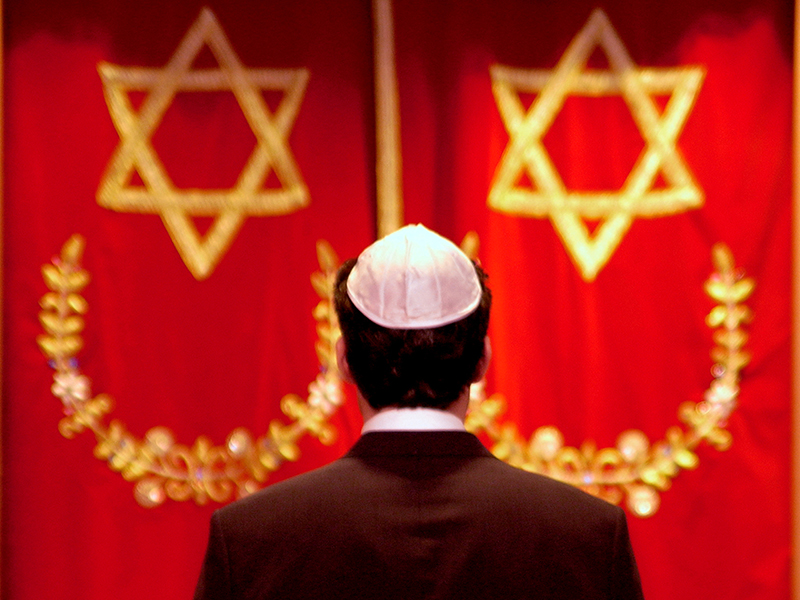Two Reform synagogues north of Toronto, Temple Kol Ami and Neshamah Congregation, will merge into one, subject to votes next month at both congregations.
While members still need to vote on the merger, representatives from both groups say the proposal is likely to be approved. The arrangement would see Neshamah members join Temple Kol Ami, which will continue to be led by Rabbi Micah Streiffer.
Neshamah was started by Rabbi Erin Polansky seven years ago and billed itself as “a new model for Jewish community.” Based in Thornhill Woods, an area with many young families, it held Shabbat services monthly in a local community centre and ran a thriving Sunday school. Dues were deliberately kept low to appeal to families.
But the innovative congregation has faced some difficult challenges. Rabbi Polansky recently announced she was moving to take a pulpit in Kingston, Ont., said Neshamah Congregation president Dana Glickman. Meanwhile, a benefactor who had financially aided the congregation since its inception decided it was “time to wind down,” Glickman said.
READ: JEWISH COMMUNITY EXAMINES HARASSMENT AND INEQUALITY IN THE #METOO ERA
The congregation began exploring the idea of hiring a part-time rabbi, but not only was it not cost-effective, “it was also doing a disservice to our membership,” Glickman said. “If that’s what (the members) wanted, they would have gone elsewhere,” from the beginning.
A merger with Temple Kol Ami, which is about the same size as Neshamah, with each having about 160 families, made sense to the leadership of both congregations.
“We realized we do so many of the same things and offer the same programming. Our mission and values are the same,” Glickman said.
Neshamah’s members tend to be younger, while Kol Ami’s “demographic is skewed not as young,” said Glickman. “The two coming together is a really nice marriage. The more we talked, the more it made sense.”

The merger will give members access to regular Shabbat services and more adult education. “They do a Torah study before Shabbat services. For adults who have been craving Torah study, I’m so excited to offer this,” Glickman said.
For the coming 2018-19 school year, Neshamah and Kol Ami will maintain their own supplementary schools.
The merger also addresses concerns that Neshamah members have raised about the congregation’s lack of a permanent space, Glickman said. Temple Kol Ami has a chapel, social hall and classrooms in what was originally Leo Baeck Day School’s building and is now Kayla Children’s Centre, on Atkinson Avenue.
“We do have a beautiful permanent space, but Kol Ami is focused much more on community than on (a) building. That’s a real synergy between these two congregations,” Rabbi Streiffer said.
The proposed merger “will allow us to continue to grow in our programming and our offerings. We’re hoping it will create a measure of financial stability for the congregation,” he said.
Even without the merger, Temple Kol Ami has long been working to shift its dues structure from one with established fees, to a “voluntary contribution model.” The proposal, which also needs to be approved at the temple’s annual general meeting next month, would mean that “there is no financial barrier to anyone joining the congregation,” Rabbi Streiffer said.
The changes will see York Region moving from having three thriving Reform congregations, to two, but will ultimately strengthen the movement in Toronto’s northern suburbs, he said.
“There are lot of people who are looking for liberal Judaism. They may not know that they’re looking for liberal Judaism, but certainly the values that they have are consistent with the values of Reform Judaism – an evolving religious tradition, values of egalitarianism. One of the things we’re looking to do is to offer programs and classes and present progressive Judaism to the community in a new way.”
